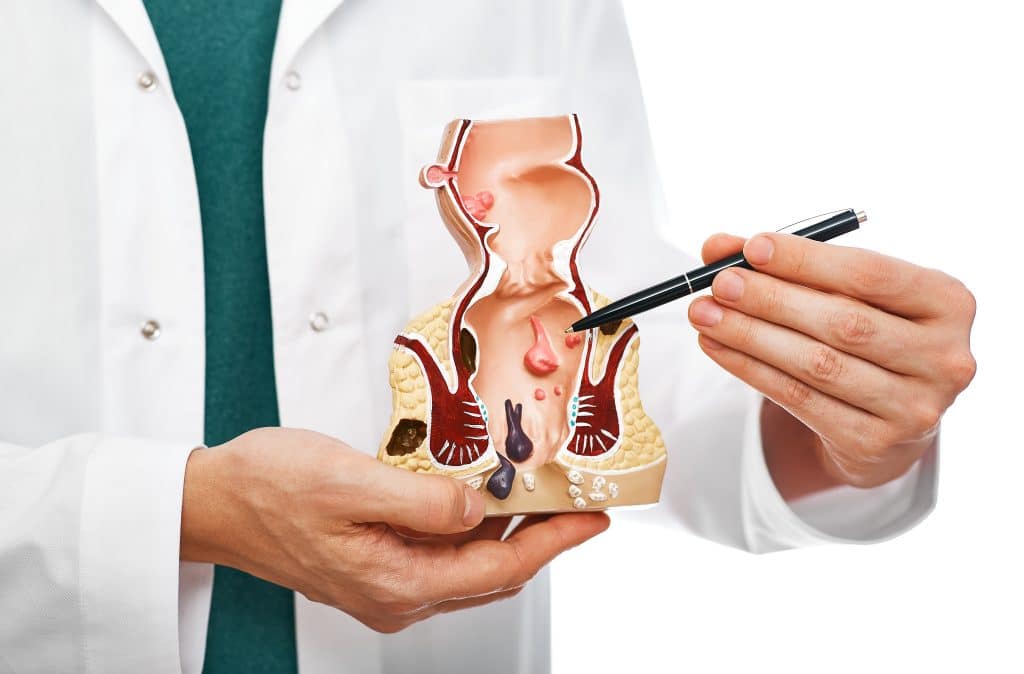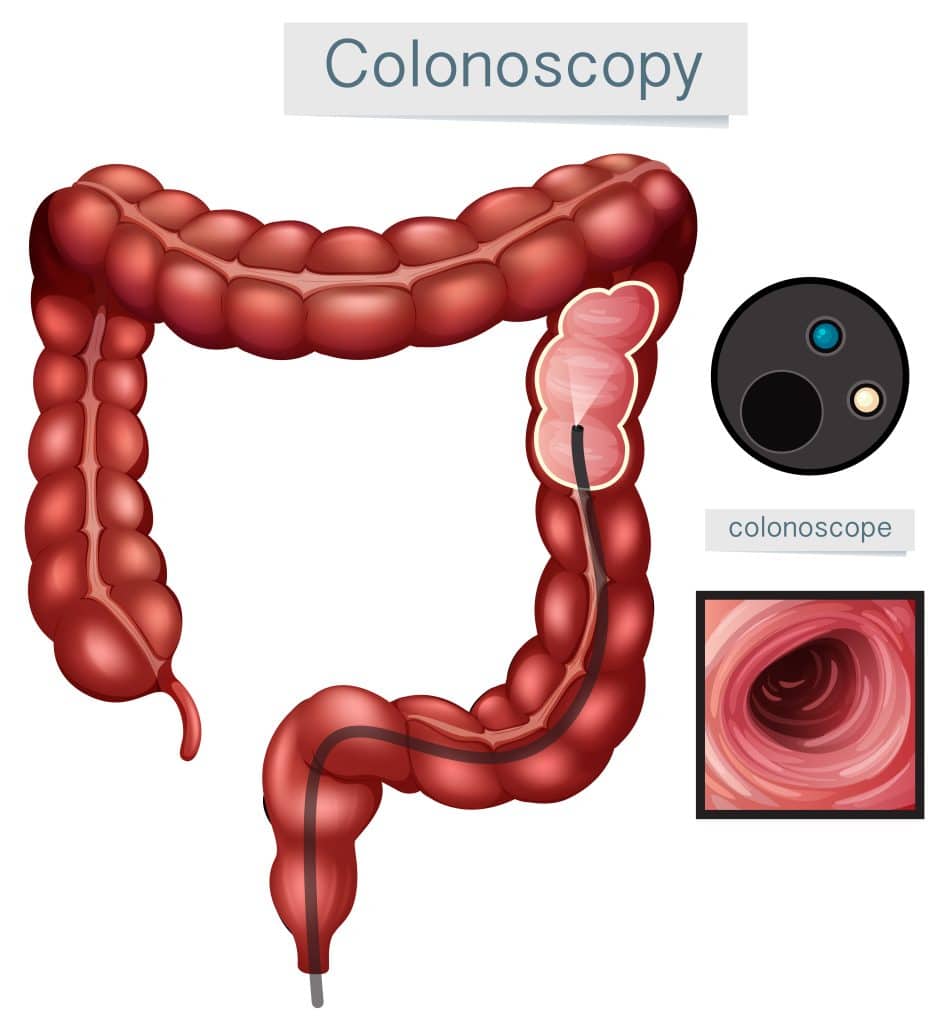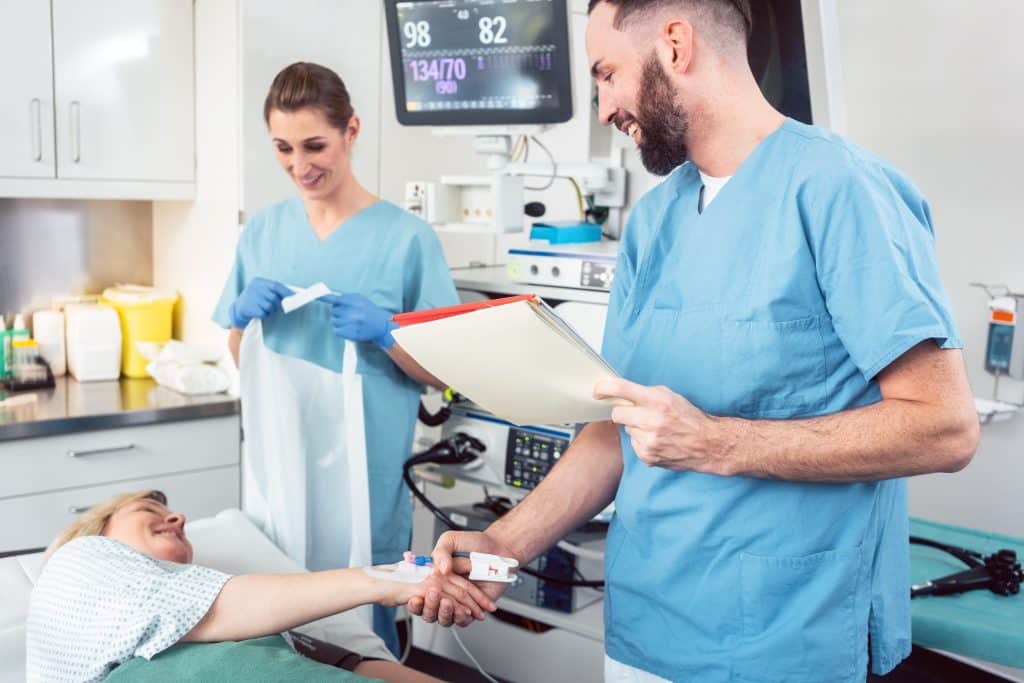Colonoscopy doctors include proctologists (colorectal surgeons) and gastroenterologists, each playing a vital role in maintaining digestive health. These specialists focus on diagnosing and treating conditions affecting the colon and rectum, utilizing their expertise to ensure thorough and effective care.
If you’re preparing for a colonoscopy, understanding the roles of these professionals can help clarify what to expect. Whether you’re undergoing a routine screening or seeking answers for specific symptoms, learning about these experts can provide reassurance and empower you to manage your digestive health with confidence.
What is a Colonoscopy Doctor?

A proctologist, also known as a colorectal surgeon, is a medical specialist focused on diagnosing and treating disorders of the colon, rectum, and anus. Their expertise covers a wide range of conditions, including colorectal cancer, colon and rectal polyps, inflammatory bowel disease, anal fissures, anal fistulas, anal condyloma, anal cancer, pilonidal cysts and hemorrhoids. To manage these issues, proctologists perform various procedures and services, such as hemorrhoids or colonoscopies, which allow them to view the inner lining of the digestive tract, identify any abnormalities like tumors or inflammation, and provide appropriate treatments or interventions.
The path to becoming a proctologist involves several stages of rigorous education and training. Initially, individuals complete an undergraduate bachelor’s degree, typically in a science-related field, followed by medical school where they gain comprehensive knowledge of medicine and patient care.
After medical school, they enter post graduate 1 (PGY-1) training in a general surgery residency program, which provides broad surgical experience over 5 years. To specialize further, they pursue a postgraduate 2 (PGY-2) colorectal surgery fellowship, which focuses specifically on advanced techniques and conditions related to the colon, rectum, and anus.
Following their formal training, proctologists achieve board certification and must continuously update their skills and knowledge through ongoing education to keep pace with evolving medical practices and technologies. Their extensive training and experience enable them to provide comprehensive care, ensuring that any issues are promptly and effectively addressed, helping you maintain optimal digestive health.
A gastroenterologist also completes an undergraduate bachelor’s degree, typically in a science-related field, followed by medical school where they gain comprehensive knowledge of medicine and patient care.
After medical school, they enter post graduate 1 (PGY-1) training in an internal medicine residency program, which provides broad medical experience over 4 years. To specialize further, they pursue a postgraduate 2 (PGY-2) gastroenterology fellowship, which focuses specifically on advanced techniques and conditions related to the upper intestines, liver, pancreas along with colon, rectum, and anus.
Roles and Responsibilities of a Colonoscopy Doctor
The roles and responsibilities of a colonoscopy doctor, especially a proctologist, are crucial for maintaining digestive health and addressing a range of colorectal issues. Here’s a closer look at their key functions:
Both a proctologist (colorectal surgeon) and gastroenterologists perform colonoscopies.
Screen for Colorectal Cancer: One of the primary responsibilities is to screen for colorectal cancer. Colonoscopy doctors use this procedure to detect early signs of cancer in the colon and rectum, which is critical for early intervention and improving patient outcomes.
Detect and Remove Polyps: During a colonoscopy, these specialists identify and remove polyps—abnormal growths that can develop into cancer if left untreated. This preventive measure helps reduce the risk of colorectal cancer.
Diagnose Conditions: Colonoscopy doctors diagnose various conditions affecting the colon and rectum, such as diverticulosis (pouch-like bulges in the colon wall) and inflammatory bowel disease (IBD), which includes conditions like Crohn’s disease and ulcerative colitis. Most oral therapies for these diseases are managed by gastroenterologists.
Identify Abnormalities: They thoroughly examine the colon’s lining to identify abnormalities such as tumors, inflammation, or areas of bleeding. This detailed inspection is essential for accurate diagnosis and effective treatment.
Perform Biopsies or Remove Suspicious Growths: If any abnormal areas are detected, colonoscopy doctors perform biopsies to collect tissue samples for further analysis or remove suspicious growths and polyps. This helps in diagnosing cancer or other conditions and determining appropriate treatment.
Offer Guidance on Preparation: They provide detailed instructions to patients on how to prepare for the colonoscopy, including dietary restrictions and bowel preparation. Proper preparation is crucial for a clear view of the colon and an accurate diagnosis.
Manage Immediate Post-Procedure Concerns: After the procedure, colonoscopy doctors monitor patients for any immediate post-procedure issues, such as discomfort or complications, and provide appropriate care and advice for recovery.
Develop Long-Term Treatment Plans: Based on the findings from the colonoscopy, these specialists develop comprehensive long-term treatment plans. This may involve follow-up procedures, medications, lifestyle changes, or referrals to other specialists, ensuring ongoing management of any detected conditions.
Through these roles and responsibilities, colonoscopy doctors play a vital part in diagnosing, treating, and preventing colorectal conditions, contributing significantly to patient health and well-being.
What is a Colonoscopy?

A colonoscopy is a procedure that is one of the most effective screening methods to prevent and diagnose colon cancer along with diagnosing other conditions. Colonoscopies decrease death from colorectal cancer by 53%.
During a colonoscopy, a slender and flexible tube equipped with a camera and lights is gently inserted through the rectum, examining the entire length of the colon. Real-time imaging allows the proctologist to scrutinize the colon’s lining for tumors, polyps, inflammation, diverticulosis, or bleeding. Patients are asleep during the procedure so they don’t feel anything. Dr. Rosenfeld has an anesthesiologist perform the anesthesia.
Despite common fears about discomfort, bowel preparation, and potential risks, the procedure is generally very safe, with minimal risks and pain. The key advantage of a colonoscopy lies in its ability to find and remove polyps, conduct biopsies of lesions, and identify inflammation.
Before undergoing a colonoscopy, patients must undergo bowel prep, involving a specific diet and laxatives to cleanse the colon for a clear examination. Although bowel preparation can be challenging, it is crucial for obtaining an unobstructed view of the colon during the procedure. The bowel preparation is very tolerable. For my bowel preparation click here https://toproctology.com/colonoscopy-bowel-prep-instructions/. For a cute public service announcement video check out the Bowel Prep Shuffle!
Benefits of a Colonoscopy
- Reduces risk of colon cancer death by 53%
- Early Detection of Colorectal Cancer
- Prevention of colon cancer via polyp Detection and Removal
- Diagnosis of Digestive Conditions
- Investigation of Symptoms like stomach pain or rectal bleeding
Qualities that Make a Good Colonoscopy Doctor
A good colonoscopy doctor, particularly a proctologist, possesses a blend of technical skills, personal attributes, and professional qualities that ensure effective and compassionate care.
- Expertise and Knowledge
- Attention to Detail
- Compassion and Empathy
- Commitment to Patient Safety
- Professionalism
Key Qualities for a Colonoscopy Include:
Communication Skills: Clearly explain the procedure and address patient concerns with empathy and clarity.
Patience: Guide patients through preparation and handle the procedure carefully, managing anxiety and ensuring thoroughness.
Manual Dexterity: Skillfully maneuver the colonoscope with precision to navigate the colon and rectum effectively.
Problem-Solving Skills: Think critically and resolve unexpected challenges that arise during the procedure to ensure successful outcomes.
How to Choose the Right Colonoscopy Doctor for You

Choosing the right colonoscopy doctor is crucial for a smooth and effective experience. Start by checking the doctor’s credentials and experience to ensure they are board-certified and have extensive experience performing colonoscopies. Seek out a specialist with a strong reputation, as reflected in patient reviews and referrals from your primary care physician. Effective communication is key—choose a doctor who explains the procedure clearly, answers your questions thoroughly, and makes you feel comfortable and respected. By focusing on these factors, you can find a colonoscopy doctor who meets your needs and delivers high-quality care.
If you have stomach symptoms a gastroenterologist is the correct doctor as they perform both upper and lower endoscopy (colonoscopy) and can do both at the same time.
If you have anorectal issues such as pain or bleeding a proctologist is the better doctor to see as they can perform hemorrhoid therapy first then a colonoscopy or if needed can do a colonoscopy and anorectal surgery at the same time.

